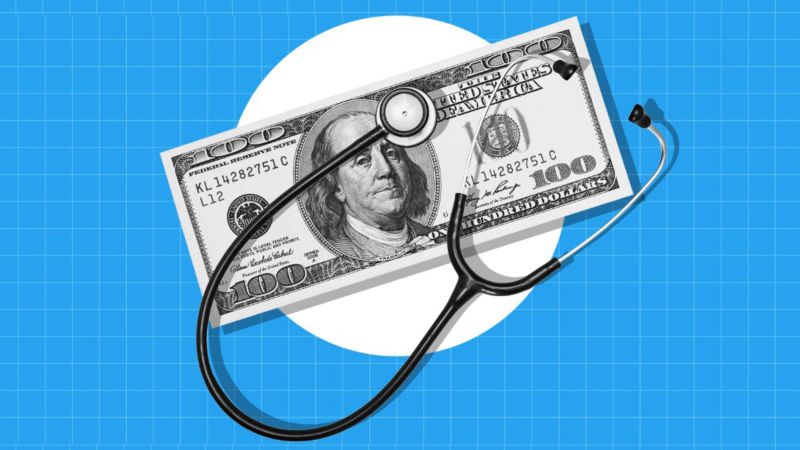In a groundbreaking move to alleviate the burden of medical debt on consumers, the Biden administration has proposed a ban on such debt from credit reports. This proposal would impact over 15 million Americans, increasing their credit scores by an average of 20 points and leading to the approval of approximately 22,000 more mortgages each year, as detailed in a fact sheet from Vice President Kamala Harris’ office. This initiative is part of the administration’s ongoing efforts to address the rising cost of living and dissatisfaction over President Joe Biden’s economic policies.
A staggering 46 million people had medical debt listed on their credit reports in 2020, making this proposal particularly significant. The proposed rule would also prevent lenders from using medical devices, like wheelchairs or prosthetic limbs, as collateral for loans and prohibit them from repossessing these devices if patients are unable to repay the loans. Expected to be finalized early next year, this rule from the Consumer Financial Protection Bureau aims to help millions of Americans with unpaid medical bills.
Furthermore, this proposal would restrict debt collectors from leveraging the listing of medical debt on credit reports to pressure consumers into paying questionable bills. Harris emphasized the unfairness of medical debt hindering Americans from securing loans for essential needs like cars, homes, or small businesses. She called on states, localities, and healthcare providers to take additional steps to eliminate medical debt, utilizing $7 billion from the American Rescue Plan Act to erase debt for nearly 3 million individuals by the end of 2026.
Facing varying estimates on the extent of medical debt in the population, the Consumer Financial Protection Bureau revealed that 15 million Americans collectively hold over $49 billion in medical debt in collections. Rohit Chopra, the bureau’s director, highlighted the prevalence of medical bills as the most common collection item on credit reports. He expressed concerns over individuals paying bills they do not owe due to errors in billing, leading to prolonged disputes with debt collectors, health insurers, and medical providers.
The impact of medical debt is especially acute among the middle class, as noted in a report from the Third Way think tank. While this group may have better health insurance coverage than lower-income Americans, they face challenges in meeting high deductibles and out-of-pocket costs. Nearly a quarter of middle-class Americans, or 17 million individuals, had unpaid healthcare bills in 2020, underscoring the need for relief measures.
In response to these issues, the Biden administration has taken steps to address medical debt and protect consumers. Initiatives include investigating credit reporting companies and debt collectors violating patients’ rights, as well as collaboration with major credit agencies to remove medical debt from credit reports. These efforts aim to provide relief to millions of Americans burdened by medical expenses and improve financial stability for all.



